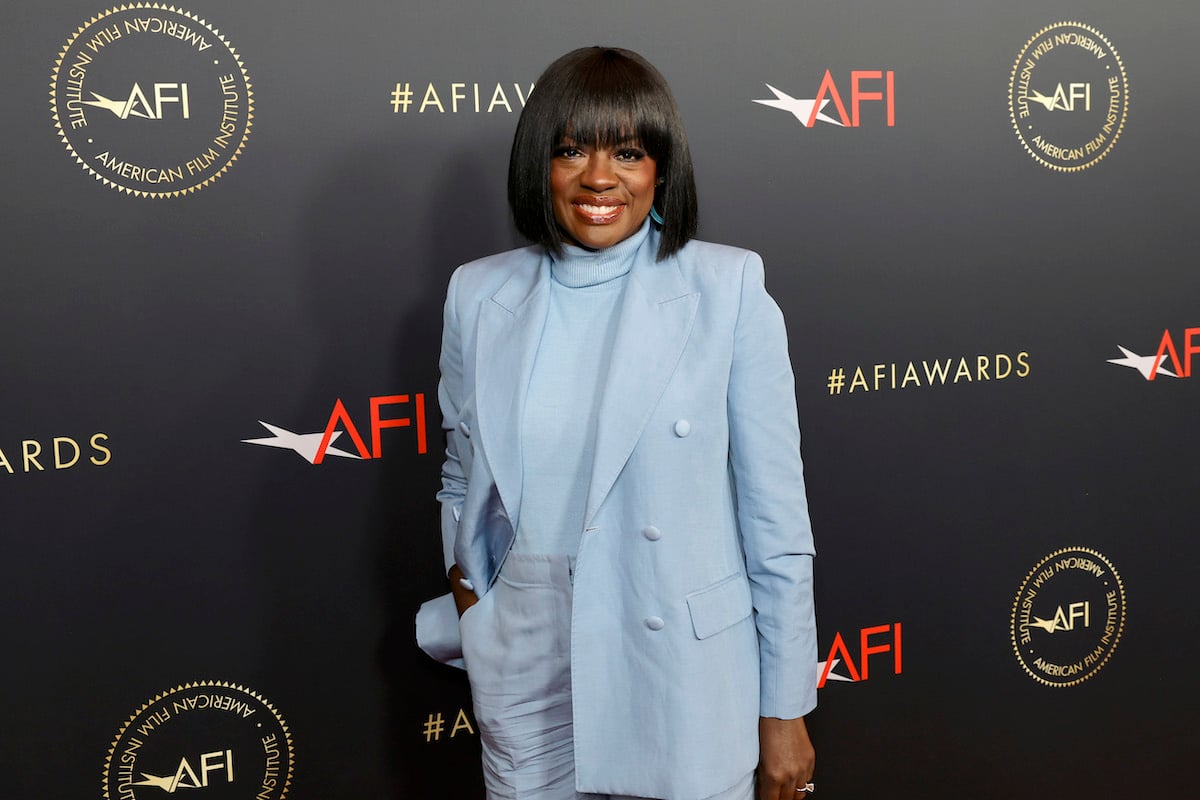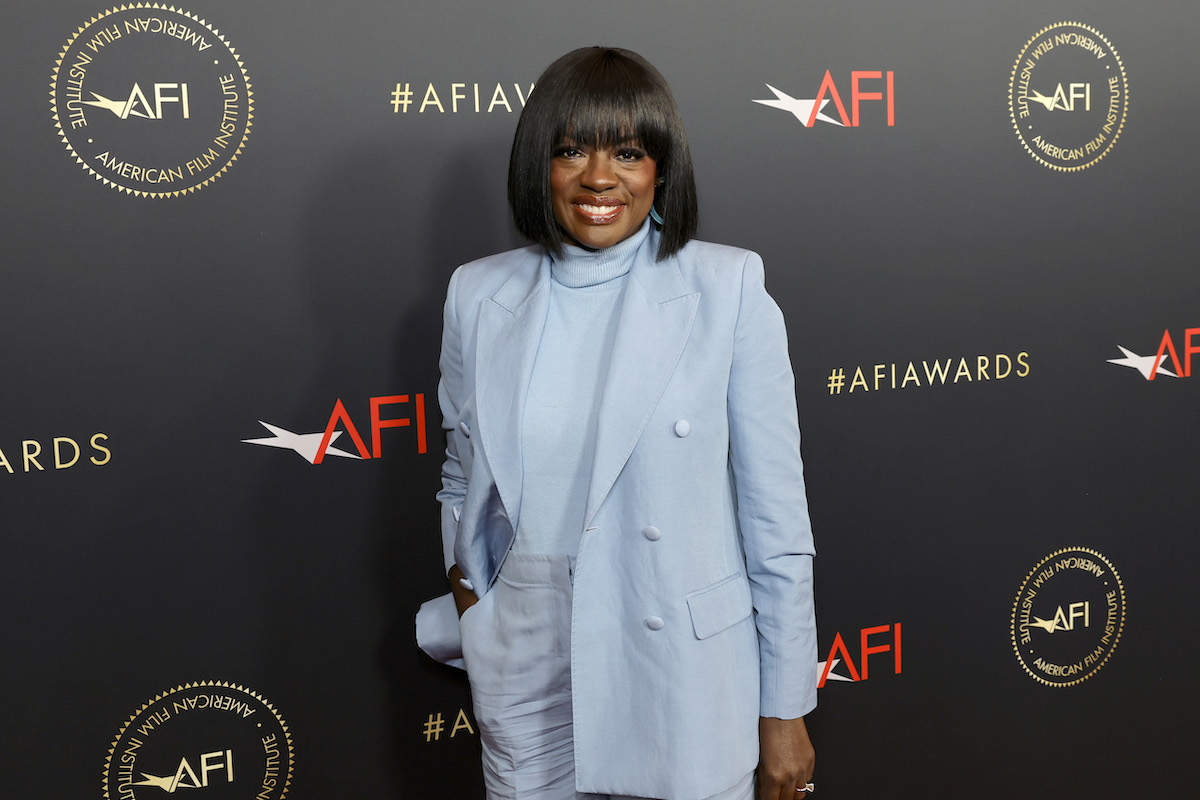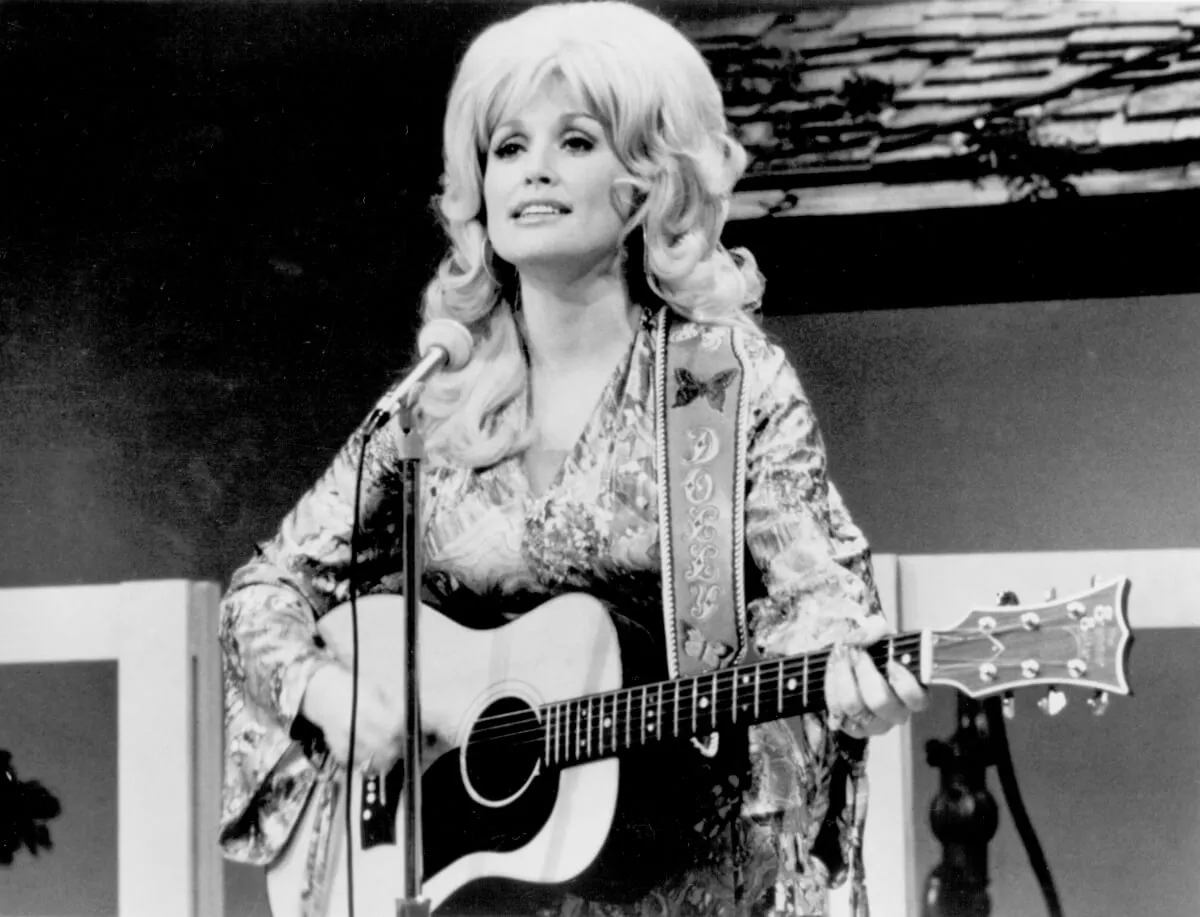
3 Viola Davis Secrets From Her Memoir ‘Finding Me’
On screens and in magazines, we see celebrities at their most scripted, poised selves. They’re promoting their latest projects, selling a new book, or extending their brand on social media. However, books remain a more vulnerable medium for many of Hollywood’s best and brightest. It’s within memoirs that they divulge the things they’ve overcome to achieve fame, and the challenges they might still face.
Viola Davis, a “triple crown” winner of two Tony awards, an Oscar, and Emmy award, is one Grammy away from the prized EGOT status. She might seal the deal at the 2023 Grammys in February for the audio narration of her 2022 memoir, Finding Me. Davis is vulnerable in the book, sharing about trials in her childhood all the way through to the “career changing” casting in Shonda Rhimes’ How to Get Away With Murder. Here’s more about what Davis shared with readers.
Working with Will Smith on ‘The Suicide Squad’ reminded Viola Davis of bullying from third grade

Davis was a household name long before playing Amanda Waller in 2016’s The Suicide Squad. In fact, she already had her Emmy award and two Tonys under her belt by then. However, it didn’t mean she was immune to people questioning her right to belong in Hollywood — especially when it was coming from Will Smith.
“Eight or nine white boys in my class made it their daily, end-of-school ritual to chase me like dogs hunting prey,” she wrote, according to an excerpt on Buzzfeed, adding that it felt like she was running for her life. Decades later while on the Suicide Squad set, Smith reportedly asked her who she was. “Viola, who are you?”
Davis says she asked him what he meant, according to USA Today. “Look, I’m always going to be that 15-year-old boy whose girlfriend broke up with him,” Smith told her. “That’s always going to be me. So, who are you?”
“There I was, a working actress with steady gigs, Broadway credits, multiple industry awards, and a reputation of bringing professionalism and excellence to any project. Hell, Oprah knew who I was,” Davis wrote. “Yet, sitting there conversing with Will Smith, I was still that little, terrified, third-grade Black girl.”
She was starstruck by George Clooney and vacationed at his Italy home
Davis is revered for her acting skills, on full display in projects like The Help and Fences. She was the first Black woman to win an Emmy for outstanding female actor in a drama series (for How to Get Away With Murder in 2015). In 2022, she was the lead in The Woman King, taking on grueling stunts and training to play a convincing Nanisca.
Despite having earned the right to get top billing on an action film (and on pretty much any project she deigns to take on these days), Davis admitted in her memoir that she’s still susceptible to getting starstruck every now and then. At the top of the list was none other than George Clooney. The two starred together in 2002’s Solaris, so had rapport. Later, at Davis’ premiere for Far From Heaven, Clooney learned Davis had married her longtime partner Julius Tennon and invited them to his spectacular Italian villa.
Clooney had the couple stay for free, and sent a car to pick them up from Milan. They dined on gourmet meals while overlooking Lake Como, in one of the most memorable vacations of her life. “I felt like I was in The Great Gatsby,” Davis wrote of the experience.
Her childhood home was infested with rats and she survived sexual abuse
Dining in Italy is a far cry from the Rhode Island home where Davis grew up. She is the fifth of six children, and their family often went without gas, electricity, and other utilities. Their home was often foul-smelling from a lack of clean laundry, and was infested with vermin. “In fact, the rats were so bad, they ate the faces off my dolls,” she wrote.
Davis’ father was an alcoholic and was often physically abusive toward her mother, Davis shared. She also opened up about her own history with sexual abuse: She and her sisters were at times abused by their brother. “My three sisters and I… were often left unsupervised with my brother in our apartment – sexual curiosity would cross the line,” Davis wrote. “He would chase us. We would lose. And eventually other inappropriate behavior occurred that had a profound effect.”
Despite the significant hurt, Davis took a forgiving tone in her book. According to her, family members “did the best they could with what they were given.”
“There is an emotional abandonment that comes with poverty and being Black,” she explained. “The weight of generational trauma and having to fight for your basic needs doesn’t leave room for anything else. You just believe you’re the leftovers.”


